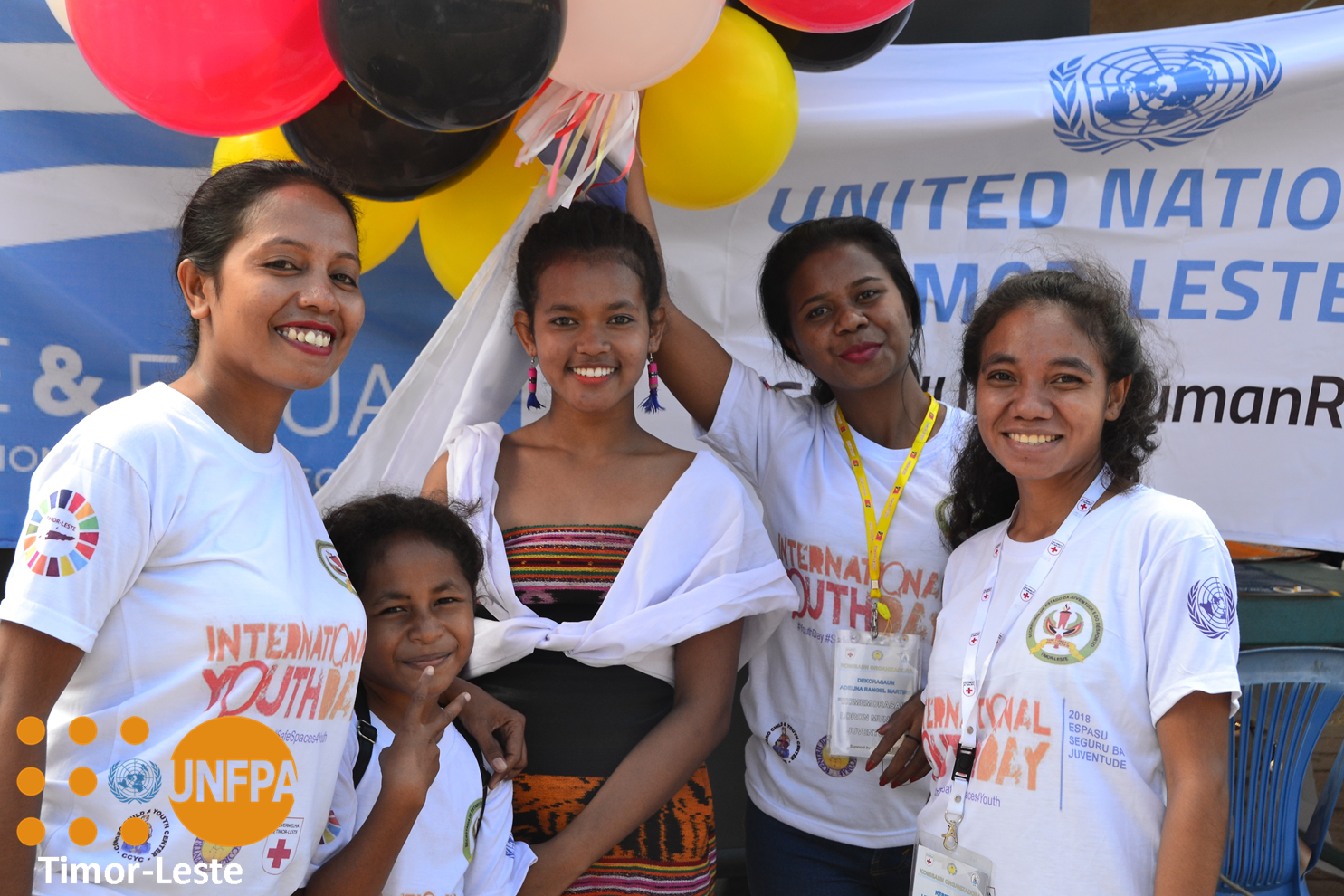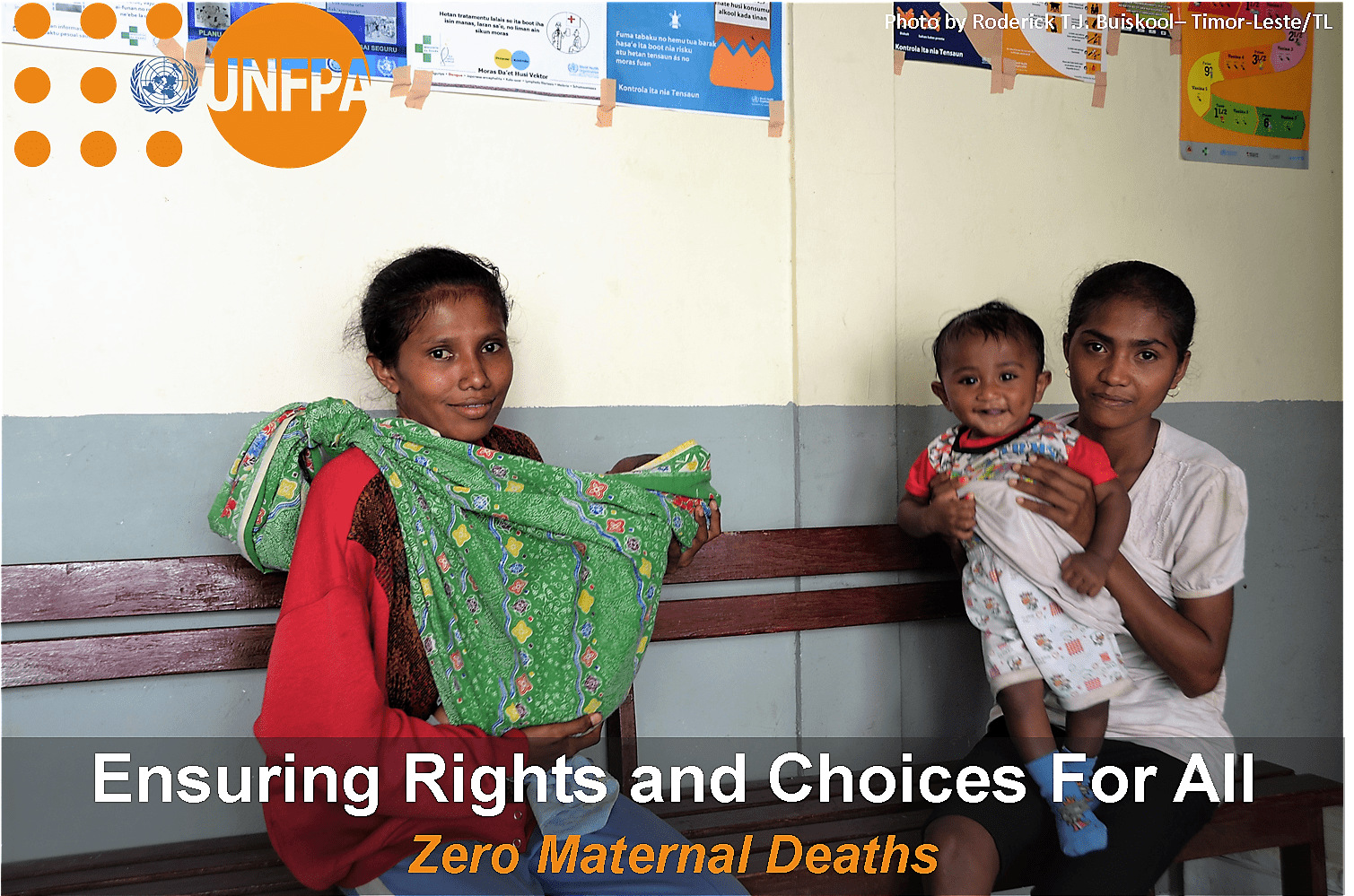Dr. José Antonio from UNFPA conducting a Basic Emergency Obstetric and Newborn Care (BEmONC) follow up after training at the Community Health Center (CHC) in Aileu.
Aileu, Timor-Leste- The availability of skilled midwives during pregnancy and child birth remains crucial in addressing Timor-Leste’s high maternal and infant mortality rates, which currently stands at 195 per 100,000 live births and 30 per 1,000 live births, respectively (TLDHS, 2016).
Guilhermina Correia de Andrade is a midwife at the Aileu Community Health Center, one of the 9 health facilities identified by the Ministry of Health as a Basic Emergency Obstetric Health Center. She is passionate to contribute to the reduction of neonatal and maternal deaths in her municipality. However, like many rural-based health workers, Guilhermina lacked essential skills to enable her to provide lifesaving Emergency Obstetric and Newborn Care (EmONC), in particular the Management of vaginal bleeding after childbirth, the management of puerperal complications, and newborn resuscitation.

The BEMONC training is funded by the World Health Organization (WHO), UNICEF, Health Alliance International (HAI), John Snow International (JSI), the Korean government through KOICA, and the Australian government through Partnership for Human Development (PHD).
Through onsite training and mentorship in the provision of BEmONC training, organized by the Instituto Nacional da Saúde (INS), and the Maternal and Child Health (MCH) department of the Ministry of Health (MoH), and with technical support from UNFPA, Guilhermina is now able to successfully perform life-saving procedures.
“I was in the first batch of the midwives that received the Emergency Obstetrics and Neo-natal care (EMONC) training in June 2018. The training that we have received has saved the lives of many mothers and babies in” said Guilhermina.
Results so far
The INS with its partners provided BEMONC training to a total of 35 health providers from nine Community Health Centers with In-patients (CHC-I) since 2018. In the second year, the EMONC training will be expanded to 13 facilities.
|
Target Municipality |
Number of Health Providers Trained |
|
Aileu |
3 Midwives |
|
Ainaro |
5 Midwives and 1 doctor |
|
Gleno |
5 Midwives |
|
Lautem |
4 Midwives 1 doctor |
|
Liquica |
3 Midwives |
|
Manatuto |
3 Midwives |
|
Same |
7 Midwives 1 Doctor |
|
Viqueque |
5 Midwives 1 doctor |
“Before the training we always used to refer cases with obstetric complications to referral hospitals, but now we (midwives) have the ability to perform a safe delivery in our community health centre (CHC),”said Guilhermina. Ever since the BEMONC trainings have taken place, it has been reported that obstetric referrals to referral hospitals such as Dili, and Maubisse have reduced by more than 50%. Throughout the trainings, the health providers have acquired the skills to reduce maternal and infant mortalities.
"There have been significant achievements in terms of the BEMONC abilities of the midwives, which have been crucial for the well-being of mothers and new-born babies," said the UNFPA obstetric trainer Dr. José Antonio.
UNFPA’s Unrelenting Support

UNFPA is committed to deliver a Timor-Leste where every pregnancy is wanted, every childbirth is safe, and every young person's potential is fulfilled. UNFPA and partners will continue to leverage support to Timor-Leste's Ministry of Health (MoH), and the National Institute for Health (INS) in paving the way for quality maternal and new-born care in Timor-Leste.



